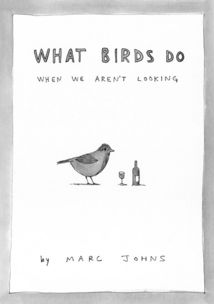
Understanding the Relationship Between Birds and Mosquitoes in the Tropical Rainforest

Have you ever wondered which birds mosquitoes bite in the tropical rainforest? This fascinating ecosystem is home to a diverse array of bird species, each with unique characteristics and behaviors. In this article, we will delve into the intricate relationship between birds and mosquitoes, exploring the various species that may be affected by these blood-sucking insects.
Introduction to Mosquitoes in the Tropical Rainforest

Mosquitoes are a common sight in tropical rainforests, where they thrive in the warm, humid climate. These insects are known for their ability to transmit diseases such as malaria, dengue fever, and Zika virus. While mosquitoes are generally attracted to humans, they also feed on a variety of animals, including birds.
Why Do Mosquitoes Bite Birds?

Just like humans, birds require blood to survive. However, the reasons mosquitoes bite birds may differ from those that bite humans. Some theories suggest that mosquitoes bite birds to obtain nutrients, while others believe it is a way for them to avoid detection by predators. Regardless of the reason, mosquitoes can still transmit diseases to birds, which can have severe consequences for the entire ecosystem.
Common Bird Species Bitten by Mosquitoes
Several bird species in the tropical rainforest are known to be bitten by mosquitoes. Here are some of the most common ones:
| Species | Family |
|---|---|
| Amazon Parrot | Psittacidae |
| Green Macaw | Anodorhynchus |
| Blue-and-yellow Macaw | Anodorhynchus |
| Golden Lion Tamarin | Callithrix |
| Harpy Eagle | Harpia |
These birds, along with many others, are susceptible to mosquito bites. While some may not show immediate symptoms, others may suffer from diseases transmitted by these insects.
The Impact of Mosquito-Borne Diseases on Birds
Mosquito-borne diseases can have a significant impact on bird populations in the tropical rainforest. Some of the most common diseases affecting birds include:
-
Malaria: This disease is caused by the Plasmodium parasite and can lead to anemia, weakness, and even death in birds.
-
Dengue Fever: While primarily affecting humans, dengue fever can also infect birds, causing symptoms such as fever, headache, and joint pain.
-
Zika Virus: This virus can cause birth defects in birds, as well as neurological disorders and other health issues.
These diseases can lead to a decline in bird populations, which can have a ripple effect on the entire ecosystem. Birds play a crucial role in seed dispersal, pollination, and controlling insect populations, so their decline can have far-reaching consequences.
Preventing Mosquito-Borne Diseases in Birds
Preventing mosquito-borne diseases in birds is essential for maintaining the health of the tropical rainforest ecosystem. Here are some strategies that can be employed:
-
Eliminate breeding sites: Mosquitoes breed in standing water, so it is crucial to remove any potential breeding sites, such as old tires, buckets, and other containers that can collect rainwater.
-
Use insect repellents: Applying insect repellents to birds can help deter mosquitoes from biting them.
-
Implement mosquito control programs: Governments and conservation organizations can work together to implement mosquito control programs, such as the use of insecticides and biological control agents.
By taking these measures, we can help protect bird populations and preserve the delicate balance of the tropical rainforest ecosystem.
Conclusion
The relationship between birds and mosquitoes in the tropical rainforest is complex and multifaceted. While mosquitoes may bite birds for various reasons, the transmission of diseases can have severe consequences for bird populations and the entire ecosystem. By understanding this relationship and taking steps to prevent mosquito







